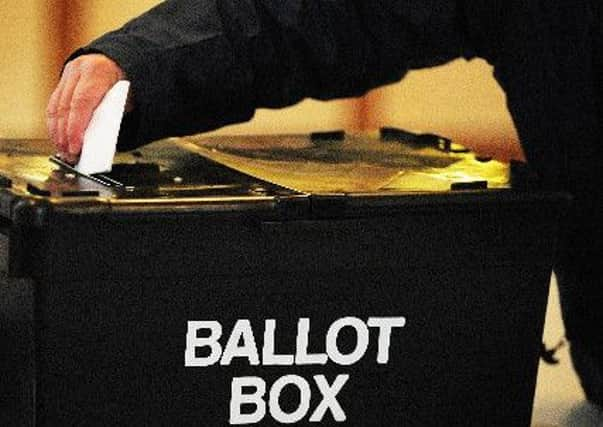Jane Devine: 16/17-year-olds and the vote


The then Scotland manager apparently first introduced himself to his players straightforwardly: “My name is Ally MacLeod and I am a winner.” This bold, self-assured attitude, so very uncharacteristic of Scots, whipped the nation into a fever pitch of self-belief and invincibility. The crash when it came was hard to bear and some say meant Scotland lost the self-belief needed to vote Yes the following year.
We Scots are not known for our positivity. The Centre for Confidence and Wellbeing talks about our “cannae do” attitude and Scotland must be the only place in the world where a double positive has a negative connotation: aye, right.
Advertisement
Hide AdAdvertisement
Hide AdPerhaps we are changing, though. While we may not be represented in the 2014 World Cup, we are taking the very positive step to extend the franchise to allow 16- and 17-year-olds to vote.
As a nation we are saying to our young people: we believe in you; we want to know what you think; you are responsible; have your say. Young people in Scotland can only benefit from this sense that others believe in them. After all, it’s not the best of times to be growing up: 33,000 16 to 19-year-olds in Scotland are not in education, employment or training; drug and alcohol misuse are on the increase; and this next generation will be burdened with repaying a crippling national debt.
So, no matter the outcome, this is a chance for Scots, and young Scots in particular to make a positive choice. And, while it may be a more straightforward choice than is usual in elections, positive reasons to vote either way are scarce.
In their first use of the vote, young people should be surrounded by both positive reasons to stay part of the UK and positive reasons for independence, but at the moment each camp seems to be asking the electorate to vote on the basis of what’s wrong with the other side’s view. It is so typically Scottish and will have a huge impact on how the result is viewed.
Imagine this scenario: the youth vote vote Yes and the overall result is a No. The way campaigning is going at the moment that would translate into “we can’t make it on our own” and “it doesn’t matter what you think”.
Clearly, if young people are old enough to vote, then they are also old enough to deal with the fallout. Nevertheless we have a responsibility to make this a positive experience for them and perhaps do something that might help release them from the negative and damaging Scottish psyche that so dogs the rest of us.